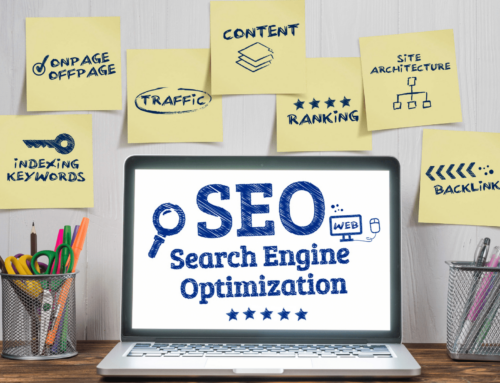On August 25th, 2022, Google began rolling out its “Helpful Content Update,” which involves changes to the way that written content is ranked on the world’s most popular search engine. Simply put, the update has been launched in an effort to connect Googlers everywhere with more helpful and relevant search results. It serves as an antidote to increasing shortcut SEO writing tactics designed to exploit Google’s previous algorithm for the purpose of garnering high rankings without providing readers with high-quality information.
For nonprofits who want their news and blog articles to be discoverable by the largest internet audience possible, this update is important because it affects the way that goal can be accomplished. Many organizations may need to make changes to the way they think about writing for the web, so if producing and publishing content is part of your job description, you’ll want to pay close attention to Google’s new best practices.
If you haven’t heard about the update or changed the way your organization designs its blog posts, it’s not too late to tune up your content for optimal ranking. Here’s what you need to know about the Google algorithm update—and how it will affect the way your organization produces content.
What the Google Helpful Content Update Does
Named for what it aims to do rather than what it is, the Helpful Content Update will now prioritize original content with valuable and relevant information that is clearly geared toward human readers rather than search engine crawlers.
In the past, Google’s algorithm simply rewarded long articles with plentiful high-volume keywords (words and phrases that large numbers of people are Googling at a given time). This led some writers (and automated writing bots) to spin out protracted articles full of repetition and “keyword stuffing” that didn’t actually offer much new or useful information. This kind of content was designed to be ranked, seen, and clicked on rather than to answer searchers’ questions. Google’s update should serve its users better, which is what nonprofits should keep in mind as they revisit their writing practices.
How To Be Sure Your Content Gets Optimal Rankings
Not to worry, however: most core guidelines for content and SEO best practices will remain the same, and you can consult the Google SEO Guide to refresh your knowledge. In general, your organization should consider the needs of its audience first and foremost. This means designing content using service-oriented criteria. Here are some content dos and don’ts in light of Google’s Helpful Content Update.
Content Writing Dos
Your nonprofit’s content should start (or continue, as the case may be) to do the following:
- Focus on answering common questions related to your organization’s general mission and the issues it works to address
- Keep topics broad enough to appear in search results for as many readers as possible (most people Google vague keyword phrases related to general topics, not detailed sentences on niche ones)
- Gear each article toward answering questions your audience may have about the topic at hand, not just on promoting your organization (at least, not until the end of the article). Think of your content as providing an educational service rather than only advertising; people don’t want to read ads when they are searching Google for information
- Provide clear, concrete answers to common questions
- Offer firsthand, in-depth expertise on your topic that helps to establish your organization as an authority on the subject
- Provide original, useful, and detailed information on the topic of each post
- Include the number of words it takes to concisely address your topic for a general audience (no more and no less)
- Ensure that readers will feel satisfied and informed after reading your content
Content Writing Don’ts
Conversely, here’s what your content should not do:
- Focus on narrow topics related to your organization’s particular operations, accomplishments, or needs
- Address overly specific topics in general, which only serve a small number of readers
- Use its platform primarily to promote your organization or ask for donations directly; readers coming from Google results will perceive this kind of content as ad-like and are then more likely to “bounce” (leave the page quickly) in search of more trustworthy information
- Inconclusively address questions that have no real or definitive answer, or whose answers are highly subjective
- Include primarily secondhand information gathered from other sources that any non-expert could have gathered and paraphrased (this makes your content parrot-like rather than authoritative)
- Be low on useful information and high on generalizations and “fluff” or filler text
- Have a high word count merely for the sake of getting ranked on Google (Google does not prioritize specific word counts)
- Be designed merely to get readers to click on your content links without offering a satisfying or illuminating experience in exchange for readers’ time
A Worry-Free Approach to Optimizing Google Content
The best way to stay up to date with Google’s content algorithms is to read about them frequently. However, if your nonprofit’s staff don’t have time to do this—and especially if you don’t have designated content writers, much less SEO experts—there’s another way to keep your content high-ranking and impactful.
You can, of course, outsource your blog articles to a freelancer or freelancing company, who may or may not stay up to date on SEO guidelines and Google algorithm changes. However, enrolling in a management plan with a trusted Google partner allows your nonprofit’s budget to stretch much farther. At Nonprofit Megaphone, our teams can not only help you acquire and maintain the invaluable Google Ad Grant, but provide high-quality content and content promotion services in line with the newest Google algorithm updates.
Our team of skilled, experienced, and highly educated content writers will craft the content your website needs in keeping with the latest Google and SEO best practices. Our writers will work with you to determine the best topics and approaches using keyword research and other factors. You can be sure that your error-free articles’ structure and talking points will be optimized for reader engagement, and that they will be written with the most current information about Google’s search algorithm in mind.
Contact us today to learn about our grant management and content plans, and let us take care of staying on top of Google’s frequent algorithm updates so your organization can get back to doing what it does best: making the world a better place!





